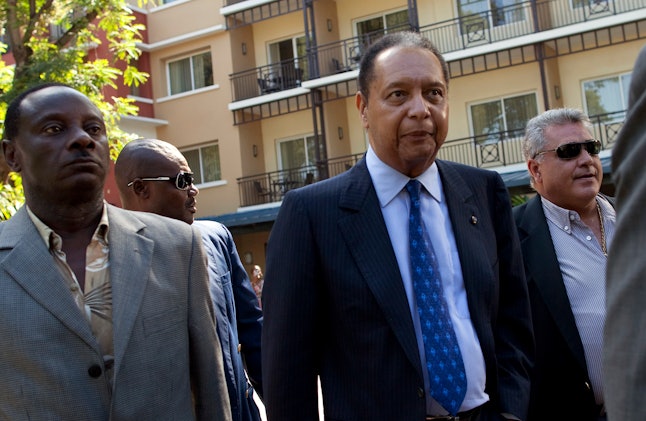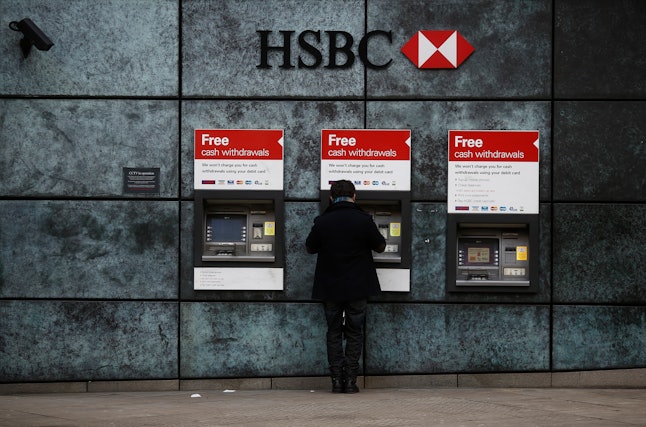Ardafilo
Sikhótico
- Desde
- 26 Ago 2017
- Mensajes
- 6.760
- Reputación
- 14.790
Que sí, que sí, hombre, que sí, Podemita lo será usted, que defiende a quienes LE ROBAN:Me nutre ver la cantidad de podemitas echando espuma por la boca cuando se critica al paraíso comunista Español y al malvado (sic) sistema financiero Suizo (De los primeros países en implantar medidas de prevención de blanqueo de capitales, Buscar en internet un poco).
Aqui está la biblia de los que critican a Suiza. Ese gran periodista llamado Ignacio Escolar y ese magnífico periódico diario.es (ironic mode off). A propósito, como podéis leer tuvo que editar el artículo a los dos días Porque lo pusieron de petulante para arriba.
Suiza es un Estado criminal
Massive Leak Reveals Swiss Banking Secrets of Drug Cartels, Arms Dealers and Dictators
Massive Leak Reveals Swiss Banking Secrets of Drug Cartels, Arms Dealers and Dictators
By Tom McKay
Feb. 9, 2015
In 2007, IT technician Hervé Falciani of the Swiss banking arm of British bank HSBC fled to France with a massive treasure trove of banking data stolen from his former employer. He revealed endemic corruption at HSBC, including account information for many of the world's richest tax evaders.
Now, an investigation by the Guardian, the French paper Le Monde, BBC Panorama and other journalists working with the Washington-based International Consortium of Investigative Journalists has dug through those files and come to some astonishing conclusions.
The Guardian reports that HSBC illegally allowed clients to withdraw huge amounts of cash in whichever currency they requested, marketed secret bank accounts to wealthy tax-dodgers and concealed "black" accounts from authorities.
From 2005 to 2007, the bank helped more than $120 billion in 30,000 accounts drop off the map, hidden from taxation and government regulators. The report shows that the accounts are "associated with more than 100,000 people and legal entities from more than 200 nations, ranging from the legitimate to the illicit," Bloomberg reported.
"These revelations confirm that banking secrecy has been used to avoid taxation," Vanessa Mock, a European Union spokeswoman for tax affairs, told Bloomberg on Monday. But the worst part isn't necessarily that clients were avoiding taxes, the worst part is who some of their clients were.

Jean-Claude 'Baby Doc' DuvalierRamon Espinosa/AP
A wretched hive of scum and villainy: Bloomberg reports that the full list of account holders include "drug cartels, arms dealers, tax evaders and fugitive diamond merchants," as well as "terror suspects" and people linked to autocratic regimes.
HSBC provided a secret account for Frantz Merceron, political operative for the late Haitian President Jean-Claude "Baby Doc" Duvalier, who was accused of embezzling hundreds of millions before fleeing his country. One of Duvalier's former finance ministers, Merceron personally arranged the dictator's exit strategy and even escorted couriers handling bags of cash.
Merceron wasn't the only former government official to find a safe haven in HSBC. A finance minister who fled Egypt during the 2011 protests against then-President Hosni Mubarak, Rachid Mohamed Rachid, had an account worth $31 million.
Another client was Rami Makhlouf, a Syrian businessman who happens to be the cousin of brutal dictator Bashar al-Assad. According to CNN, Makhlouf is believed to be a major financial supporter of the regime. Diplomatic cables posted through WikiLeaks describe him as one of a "high-profile inner circle members and regime financiers." Makhlouf's assets have been under U.S. sanctions since 2008, and in 2011, the U.S. blacklisted his Syriatel corporation.
The bank also gave a hidey-hole to Gennady Timchenko, a Russian oligarch closely tied to Russian President Vladimir pilinguin whose assets have been targeted by U.S. sanctions. American officials believe he is involved in money laundering.
Other accounts belonged to Mozes Victor Konig, a fugitive diamond dealer on the run from Interpol, and his equally sought-after colleague Kenneth Lee Akselrod. There was also Selim Alguadis, who ICIJ says is "alleged to have supplied sophisticated electrical goods to Libya's secret nuclear weapons project," and Aziza Kulsum, who the U.N. fingered in 2001 as a key player in the illegal coltan trade in Democratic Republic of Congo and a financier of the Burundian civil war in the 1990s.
Falciani's data had previously revealed that HSBC was involved in laundering billions of dollars of drug cartel money, enough to essentially make it one of the biggest players in the underground drug trade.
Unless your name was Osama bin Laden, HSBC would hide your money. But HSBC was content to help stow away his rainy-day fund; three people from the so-called "Golden Chain" of 20 al-Qaida financiers continued to use the bank's services after their names were released.

Bloomberg/Getty Images
This was just one major bank. The world of international banking is rife with fraud, evasion and other financial crimes. As Deutsche Welle's Jasper Sky notes, another major scandal was the forex scam "aimed at manipulating currency exchange rates," which resulted in more than $4 billion in fines for seven of the world's largest banks including JP Morgan Chase and Citigroup. And the forex scam amowed the libor scam, an interest-rate manipulation scheme that implicated 16 major banks.
Since 2008, the Guardian reports that major banks have racked up over $100 billion in fines in the U.S. and Europe, yet only "agonizingly slow" reforms have begun. What the ICIJ revealed at HSBC isn't some strange aberration — it's the way big banks have been doing business for decades.
For years, HSBC got away with it. Who knows what else they and other major financial institutions are hiding?
